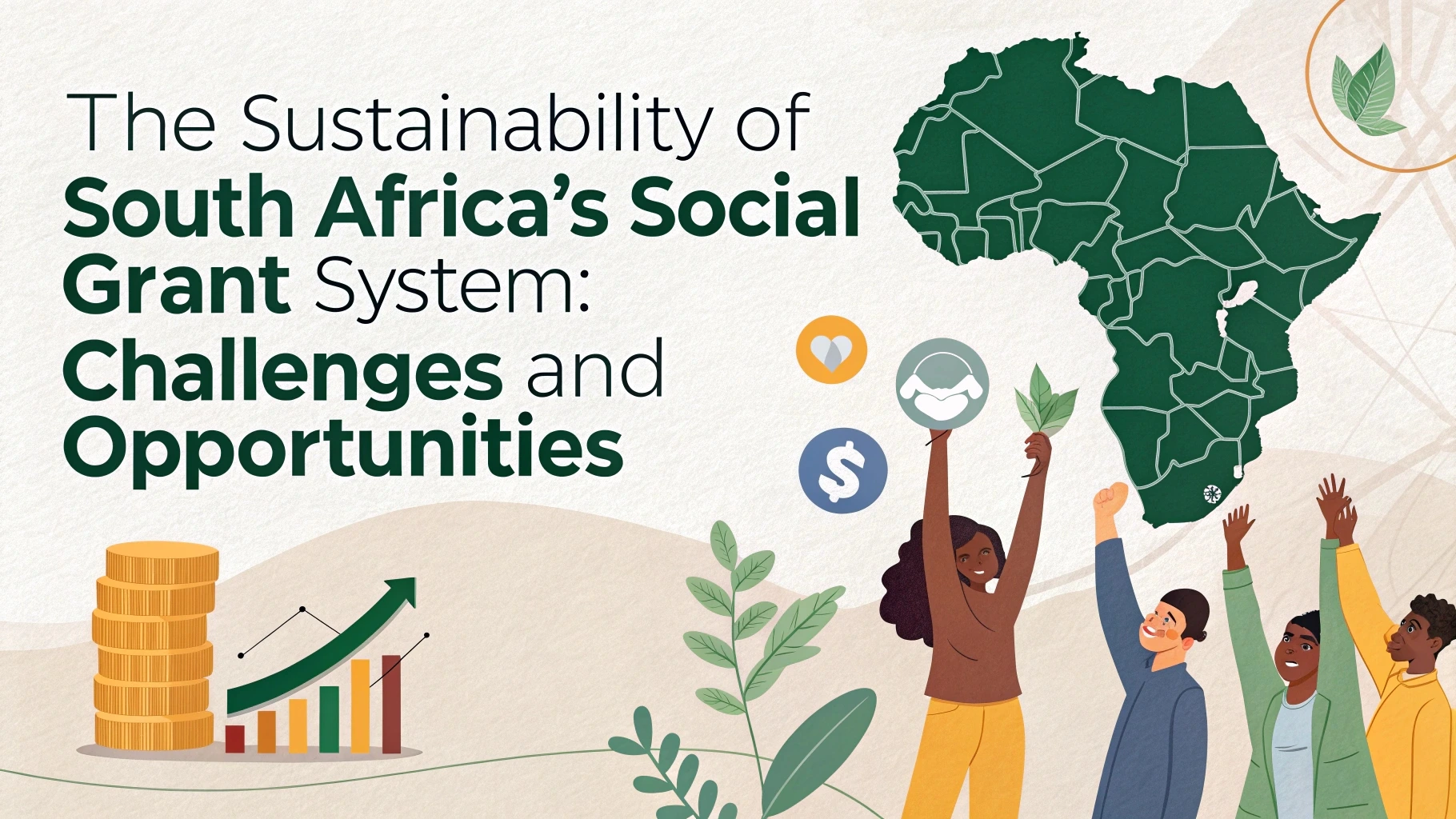South Africa’s social grant system, administered by the South African Social Security Agency (SASSA), plays a crucial role in alleviating poverty and supporting vulnerable populations. With over 26 million beneficiaries, it serves as a safety net for the elderly, disabled individuals, and children. However, concerns about the system’s financial sustainability continue to grow, given rising costs, economic challenges, and instances of fraud. This blog explores the key challenges facing the social grant system, potential reforms, and opportunities for long-term sustainability.
Overview of the Social Grant System in South Africa
SASSA provides various types of grants, including:
- Old Age Grant
- Child Support Grant
- Disability Grant
- War Veterans Grant
- Foster Child Grant
- Care Dependency Grant
- Social Relief of Distress (SRD) Grant
These grants are vital in reducing poverty and inequality, but their increasing cost is placing a strain on public finances. In 2024, the government allocated R217.1 billion for social grants, with projections indicating an increase to R259.3 billion by 2026/27. This expenditure accounts for approximately 11% of the national budget and 3.3% of the country’s GDP.
Challenges Facing the Social Grant System
Budget Constraints
South Africa’s slow economic growth, averaging just 0.8% since 2012, has made it difficult to sustain the rising cost of social grants. Government debt levels remain high, with gross national debt at 74% of GDP, expected to stabilize at 75% in 2025. With limited revenue growth and increasing demands on public spending, ensuring continued funding for social grants presents a significant challenge.
Fraud and Illegal Recipients
Fraud is another major issue, particularly within the SRD R350 grant system. Investigations have revealed widespread misuse, including unauthorized applications and fraudulent claims. A notable case involved two Stellenbosch University students exploiting system vulnerabilities to secure payments they were not entitled to. SASSA has responded by suspending payments where fraud is suspected and working with the Special Investigating Unit to curb the abuse. However, the scale of fraudulent activities suggests that more robust measures are necessary.
Dependency Concerns
While social grants provide essential support, they may also contribute to long-term dependency. Research suggests that reliance on grants can deter job-seeking efforts, particularly among younger beneficiaries. Addressing this challenge requires a balanced approach that continues to provide support while also promoting economic participation.
Potential Reforms for a More Sustainable System
Enhancing Verification Processes
To prevent fraud, SASSA has introduced the Electronic Know Your Client (EKYC) system to verify recipients’ identities. Strengthening such digital verification measures and improving means-testing processes can help ensure that grants reach the most deserving individuals.
Introducing Conditional Cash Transfers
Conditional cash transfers, such as linking grants to job training or education, could encourage self-sufficiency. South Africa already has a school attendance requirement for the Child Support Grant, and expanding such conditions to other grants may help reduce long-term dependency.
Improving Administrative Efficiency
Digitizing the grant system and streamlining application processes can lower administrative costs and reduce errors. While SASSA’s transition to a new online system has faced initial disruptions, a fully digital approach has the potential to improve service delivery and cut costs.
Promoting Economic Growth and Job Creation
A sustainable grant system ultimately depends on economic growth. Initiatives such as the Jobs Summit Framework Agreement, which aims to create 275,000 jobs annually, and targeted sector plans like the Poultry Master Plan can help reduce reliance on grants over time.
Opportunities for Long-Term Sustainability
Economic Growth and Increased Tax Revenue
A stronger economy would generate higher tax revenues, allowing the government to continue funding social grants without increasing debt. Structural reforms in energy, logistics, and infrastructure, as outlined in the 2024 Budget Speech, could help boost economic growth.
Public-Private Partnerships
Collaboration with private sector companies and international organizations could provide additional funding and resources for social development programs. Public-private partnerships can also help create job opportunities, reducing long-term dependence on grants.
Innovative Funding Models
Alternative funding approaches, such as social impact bonds, could help ensure long-term sustainability. These mechanisms allow private investors to fund social programs, with returns linked to successful outcomes, reducing the burden on the government.
Enhancing Financial Inclusion
Encouraging financial literacy and savings programs for grant recipients could help improve long-term economic stability. Programs aimed at teaching grant beneficiaries how to manage finances, invest in small businesses, or access microfinance opportunities could reduce dependence on state support.
Conclusion
South Africa’s social grant system remains a vital tool in poverty alleviation, but its sustainability is under pressure due to budget constraints, economic challenges, and fraudulent claims. To ensure the long-term viability of the system, the government must adopt reforms such as better verification processes, conditional grants, and improved administrative efficiency. Additionally, economic growth, job creation, and innovative funding mechanisms can help reduce dependency on grants while ensuring continued support for those who truly need it. A balanced approach that addresses both financial constraints and social welfare needs is essential for the future of South Africa’s social grant system.
